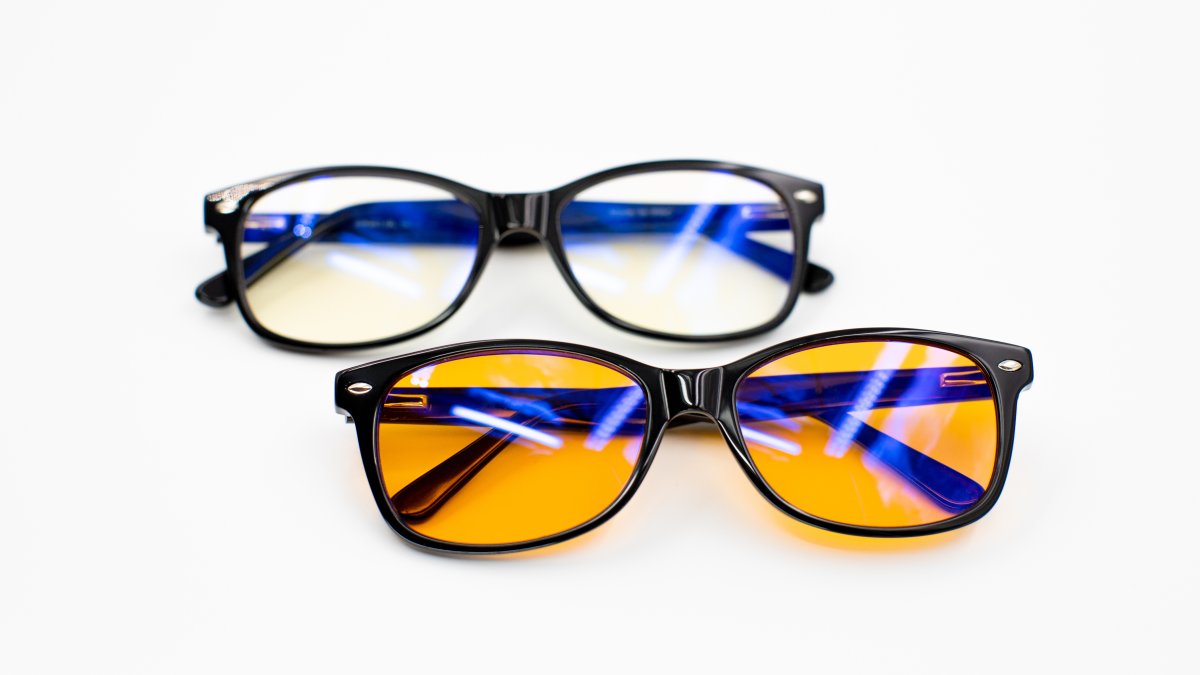
Many North Texas students have shared their issues with digital fatigue and some of them are turning to something called “blue light blockers” to help, NBC 5’s Alanna Quillen reports.
More people are spending more time than ever before on the screen, due to COVID-19.
All of our face to face interactions -- from work meetings to classroom time -- have been converted to screen time.
Many North Texas students have shared their issues with digital fatigue and some of them are turning to something called "blue light blockers" to help.
"I invested in some blue light glasses which I heard about a lot,” said Ashleigh Rose, a recent high school graduate who is entering her first semester at UT Austin this fall. “I still got some headaches, but it was a lot better so I would recommend them to anyone."
Experts, like those at My Eyelab in McKinney, said almost every patient is asking about blue light blocking glasses right now. They've seen an uptick in patients -- especially students -- complaining of eye fatigue, tiredness of the eyes, dry eyes and headaches.
"We've seen a huge increase since everyone has transitioned to staying at home with more computer usage -- college kids and even kids at the age of six and eight years old,” said general manager Christina Nguyen. "Because you're spending that much time in front of a computer, you're having to concentrate even harder.”
Blue light is everywhere. It’s in the sun, fluorescent bulbs, and TVs.
Local
The latest news from around North Texas.
However, the computers and smartphones we’ve been using more lately emit large amounts of blue light directly at your eyes. Doctors say your eyes are not very good at blocking it and the high energy of light can cause the muscles in your eyes to strain, leading to the pain and other issues.
The special glasses help block much of that blue light out.
“Blue light is a lens coating applied on the lens that allows it to block any blue light that enters. It helps reduce fatigue, helps reduce digital eye strain,” said Nguyen.
Light will have a yellowish tint when you have the glasses on, although the coating itself appears blue on the lens.
Aside from cutting down on screen time as much and wherever possible, Nguyen said it also boils down to time of day. Blue light can easily mess up your sleep schedule if children and adults develop habits of spending a large amount of time on the screen in the hour or two leading up to bedtime.
"With all this computer usage, the American Optometric Association has shown that it does suppress your melatonin, making it harder to sleep at night,” Nguyen said.
As virtual classes ramp up for the semester, eye experts said it's really important to get your child's eyes checked annually, especially before considering blue light blockers.
Some places like are offering back to school specials. Currently, children 8 through 18 are eligible for a free eye exam at My EyeLab.
Virtual visits are also becoming more popular, where a tele-doctor instructs patients via video call in an exam room without having that face to face contact.
Optical shops can customize a blue light blocker prescription. You can also get a non-prescription pair of glasses anywhere online.
If you wear contact lenses, there are a few companies exploring and manufacturing blue light contacts – just ask your eye doctor about it.